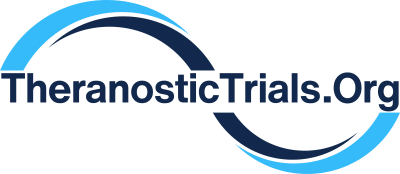Filters
(2 results)
Study Types
Enrolling Status
Study Sponsor Type
Paraganglioma (NEC)
Study Status
Last Updated: Mon Aug 11 2025
Pharmaceutical Trials (Site Sponsors)
Investigator Trials
Pharmaceutical & Investigator Trials (Non-Site Sponsors)
NCT06233903
A Prospective Study Assessing the Relationship Between Expression of the Norepinephrine Transporter and 18F-mFBG PET Imaging Results in Neuroblastoma Tumor, Other Neural Crest Tumors, and Organs Innervated by the Sympathetic Nervous System
This is a prospective, Phase 2, open-label study designed to assess the relationship of 18F- mFBG PET imaging findings and NET expression in neuroblastoma tumor (Cohort I) and adrenergically-innervated organs in non-tumor subjects or neural crest tumors other than neuroblastoma (e.g. pheochromocytoma/paraganglioma) (Cohort II). As the mechanism of cellular uptake of benzylguanidine compounds such as mFBG is predominantly via cell-surface NET, there should be a demonstrable relationship between level of NET expression, whether expressed on neuroblastoma tumor, other neural crest tumors, or organs innervated by sympathetic neurons, and 18F-mFBG PET results. Eligible participants will either have: histopathologically established diagnosis of neuroblastoma and a scheduled clinical biopsy or surgery procedure within 21 days after 18F-mFBG PET imaging procedure; or be scheduled to have a clinical biopsy or surgery procedure that will yield a tissue specimen from an adrenergically-innervated organ or a non-neuroblastoma neural crest tumor within 21 days after 18F-mFBG PET imaging. At least one tissue specimen must be expected to be suitable for analysis of NET expression. Every subject will be expected to have at least 1 suitable recent tissue specimen available for NET expression analysis. Neuroblastoma subjects will also have undergone at least 1 exam with the current standard of care benzylguanidine imaging agent, 123I-mIBG, during the course of clinical care following the original diagnosis of neuroblastoma. All subjects will undergo 18F-mFBG PET imaging using either clinical PET/CT or PET/MRI equipment. PET studies will be examined on-site by a board-certified nuclear medicine physician or a board-certified radiologist experienced in reading 123I-mIBG and PET scans to ensure technical image quality and information content.
🇺🇸
NCT06479811
Phase I Trial of [212Pb]VMT-Alpha-NET in Metastatic or Inoperable Somatostatin-Receptor Positive Gastrointestinal Neuroendocrine Tumors, Pheochromocytoma/Paragangliomas, Small Cell Lung, Renal Cell, and Head and Neck Cancers
Some cancers have high levels of proteins called somatostatin receptors (SSTRs) on the surface of the tumors. These tumors can be in the lung, head and neck, digestive tract, kidneys, and in or near the adrenal glands. Researchers want to know if drug treatments that target SSTRs can help shrink these types of tumors.



